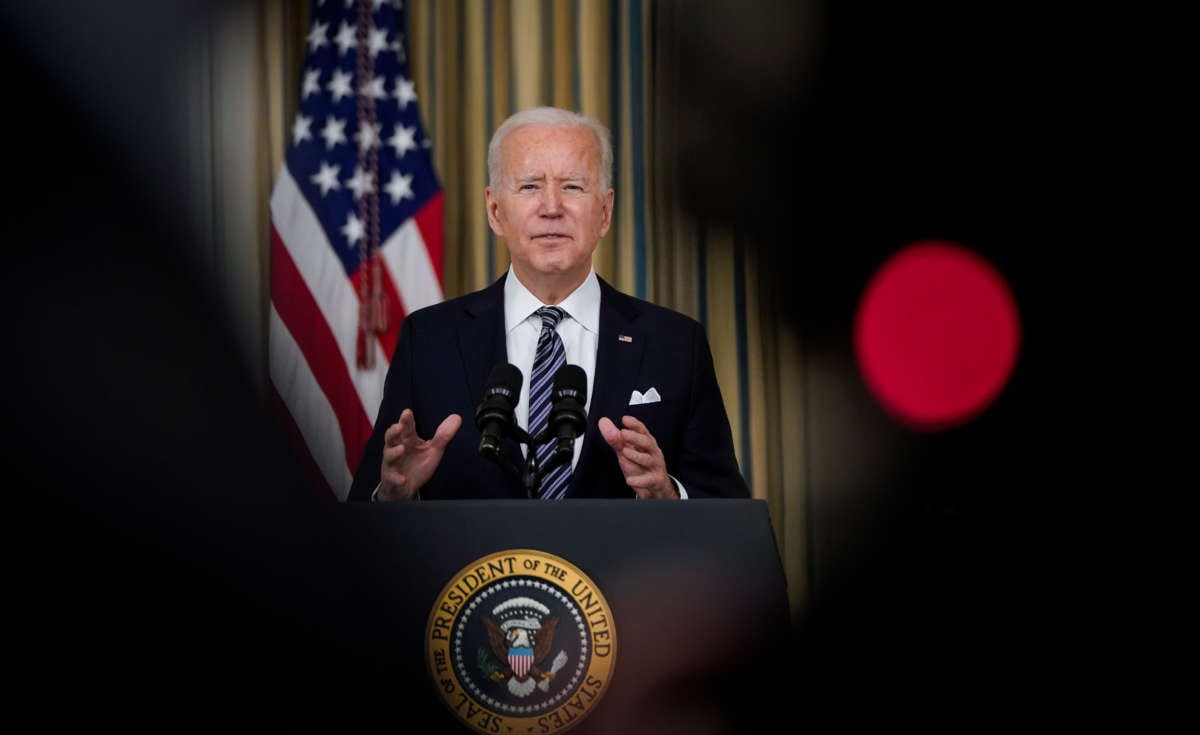During an interview with George Stephanopoulos on ABC News on Tuesday, President Joe Biden indicated that he was open to Democratic leaders in the Senate changing the rules to the filibuster — but did not endorse completely eliminating the procedural rule.
Stephanopoulos asked Biden about how the filibuster might disrupt future proposals and policy initiatives.
“Aren’t you going to have to choose between preserving the filibuster, and advancing your agenda?”
Biden rejected the dichotomy presented within the question, and called for reforming how the filibuster is used rather than ending it.
“I don’t think that you have to eliminate the filibuster, you have to do it what it used to be when I first got to the Senate back in the old days,” Biden said. “You had to stand up and command the floor, you had to keep talking.”
Biden said he recognized that the filibuster was being abused, and was being used as a tactic to block legislation and the democratic process itself. Change, he said, was necessary in order to ensure the federal government could still work.
“It’s getting to the point where, you know, democracy is having a hard time functioning,” Biden said.
Several Democratic lawmakers, including a number within the Senate itself, have called for the complete removal of the filibuster. Senate Minority Leader Mitch McConnell (R-Kentucky) has warned that, if Democrats go that route, he will use other procedural rules to stop Senate business.
“Nobody serving in this chamber can even begin to imagine what a completely scorched earth Senate would look like,” McConnell said on Tuesday, adding that he and the Republican caucus would cause the chamber to look like a “100-car pileup, nothing moving.”
Regardless of what McConnell has said, standing in the way of Democrats ending the filibuster, however, are two moderate Democratic lawmakers in that legislative body, Sen. Joe Manchin (D-West Virginia) and Sen. Kyrsten Sinema (D-Arizona), who have both pledged to vote against any moves that would eliminate the rule.
With a 50-50 divide in the Senate, their endorsement of keeping the filibuster in place means that its complete removal won’t likely happen. Manchin has, however, indicated he supports reforming the rule, much like Biden has suggested.
Reform might not be enough, however. Even with a “talking filibuster” rule change, there would likely still be significant blockage of other Biden administration agenda items.
“The filibuster as it currently exists cannot be allowed to stand if real progress in these great struggles is to be made,” Truthout senior editor and lead columnist William Rivers Pitt said in a recent column. “Minority Leader Mitch McConnell and his cohort of Trump hostages simply cannot be allowed to wield such unspeakable power from the minority.”
Others agree. Bloomberg opinion columnist Jonathan Bernstein noted that forcing attrition — the “talking filibuster” rule — is a difficult process in and of itself, and as a procedure it could be too weak to do anything different from what’s currently happening in the Senate with the GOP holding the Democrat’s agenda hostage.
“Procedures that would make it easy to perform talking filibusters wouldn’t deter them and would backfire on the majority, which wants to use scarce Senate time to pass the things it does have the votes for,” Bernstein wrote. “Procedures that would make it hard to filibuster could make attrition work, but if a majority were willing to enforce them then it would really just be eliminating the filibuster. If it had the votes for that, then why go through a charade of pretending to keep the tradition in place?”
Press freedom is under attack
As Trump cracks down on political speech, independent media is increasingly necessary.
Truthout produces reporting you won’t see in the mainstream: journalism from the frontlines of global conflict, interviews with grassroots movement leaders, high-quality legal analysis and more.
Our work is possible thanks to reader support. Help Truthout catalyze change and social justice — make a tax-deductible monthly or one-time donation today.
